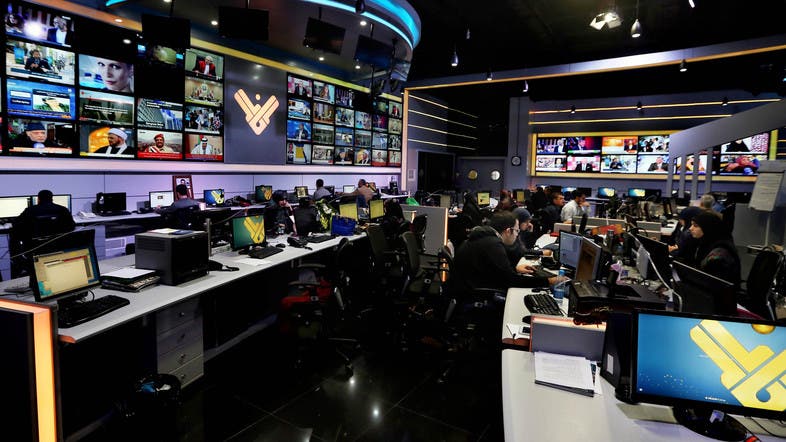
By Tarek Ali Ahmad
What has been a growing fear in the minds of those who work in
Lebanon’s media industry is slowly becoming a reality. Journalists and
news presenters are being sent to the chopping block due to budget cuts,
the rise of online journalism and political factors.
Last
week, prominent Lebanese television host Dolly Ghanem was told to pack
up her belongings at the Lebanese Broadcasting Company International
(LBCI) after serving 31 faithful years with the station. Her dismissal
was not the first and it surely won’t be the last as more and more
employees across the media industry are fearing for their jobs – hoping
their names won’t be on the pink slip.
“We
are in a transitional phase. There is what is known as disruption and
innovation and [things are] constantly changing,” media analyst and
director of Media Unlimited Magda Abu-Fadil told Al Arabiya English.
“There’s
constant change, but it’s happening at such a fast pace that media are
having a hard time catching up,” Abu-Fadil, who is also a Huffington
Post blogger, continued.
The news industry
in Lebanon has been plagued by political funding, a lack of proper
education among journalists and heavy reliance on foreign donors.
“Most
of the media, if not all, [are] backed by political parties or
businessmen that are loyal to these parties,” journalist Diana Moukalled
told Al Arabiya English.
“Firstly, we
have a defective media market and secondly, and more importantly, the
media is funded [by political parties] and we are suffering from a
large-scale political and economic crisis and thus the media was first
to fall victim to this.”
Lebanon has nine
television stations, one of them government owned and the rest privately
held. Each television channel is widely accepted to uphold certain
political biases depending on the political leanings of the owner.
While
the Hariri family’s Future TV is widely seen as being aligned with the
pro-Saudi Arabia Future movement, Hezbollah’s Al-Manar TV is seen to be
pro-Iran, for example.
This has compelled stations to depend on funding from political outfits, rather than advertising.
“One
major setback has been the drastic drop in oil prices. So when that
started drying up or dwindling, obviously there’s a trickledown effect,”
Abu-Fadil said.
Earlier this year, Lebanese newspapers As-Safir, An-Nahar and Al-Liwaa sent out memos explaining the looming closure of their printing presses. An-Nahar and As-Safir
pulled through, juicing the political money melon even further in order
to stay afloat, but for how long will this be sustained?
The
rise of online and social media has changed the media industry formula,
and Lebanon seems to be lagging behind on all fronts.
“Today,
we are in a pivotal phase and we have to reconsider how the media
works. Do we want to continue [allowing] the media to follow political
parties? Do we even have the capability of [allowing] the media to be
independent of this system?” Moukalled asked.
Media
analyst Ahmad Ayyash previously told Al Arabiya English that “the media
wants to change and become modern and open to the world, but it does
not have the capability.”
Lebanon’s
supposedly-doomed media industry will continue to freefall if it does
not change its ways, adapt and become independent. However, is that even
possible?



